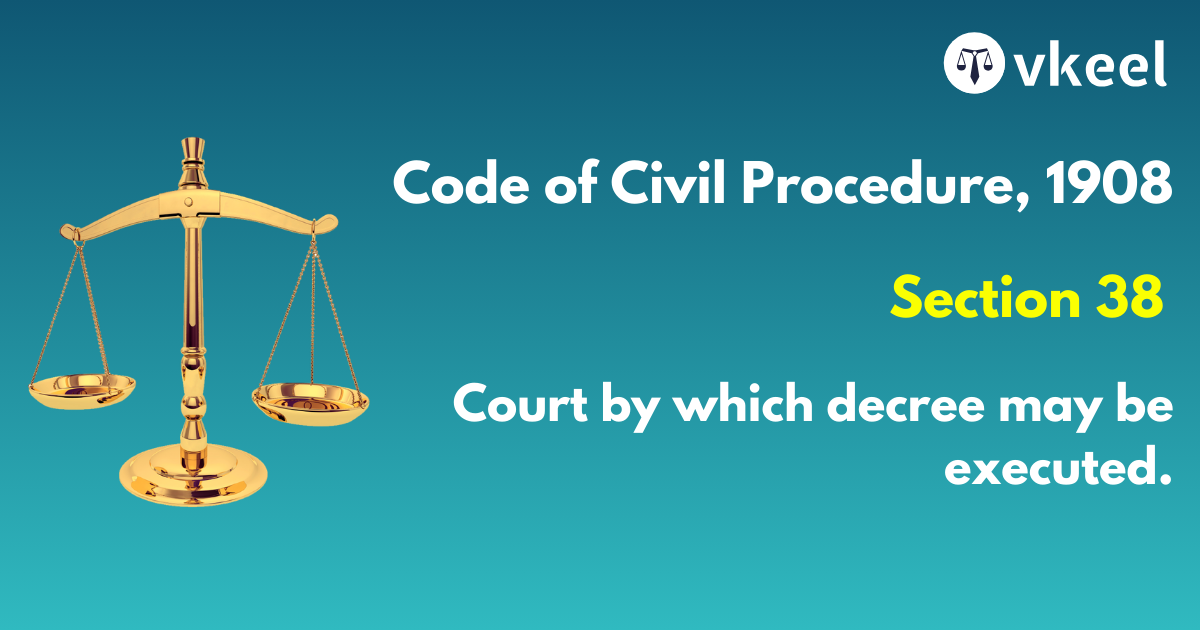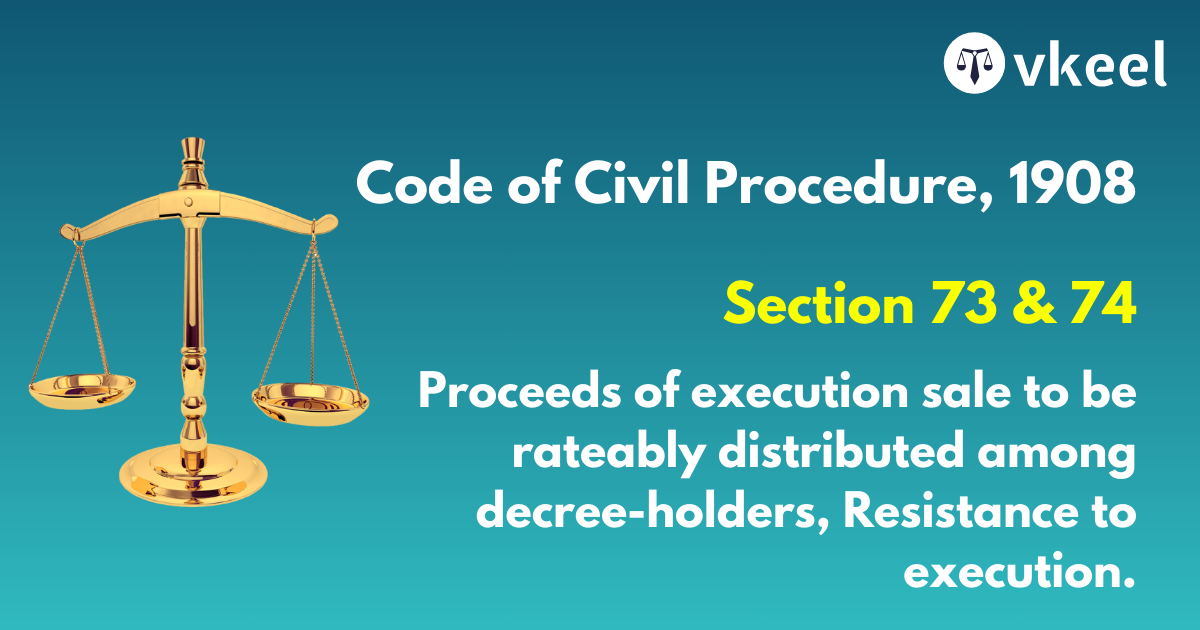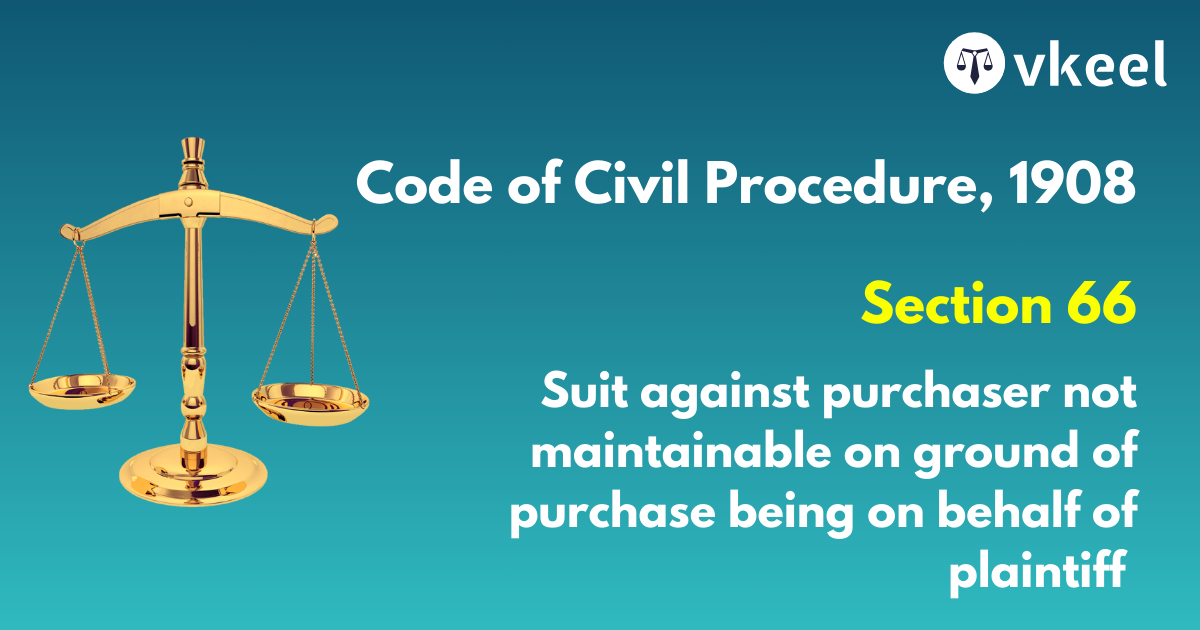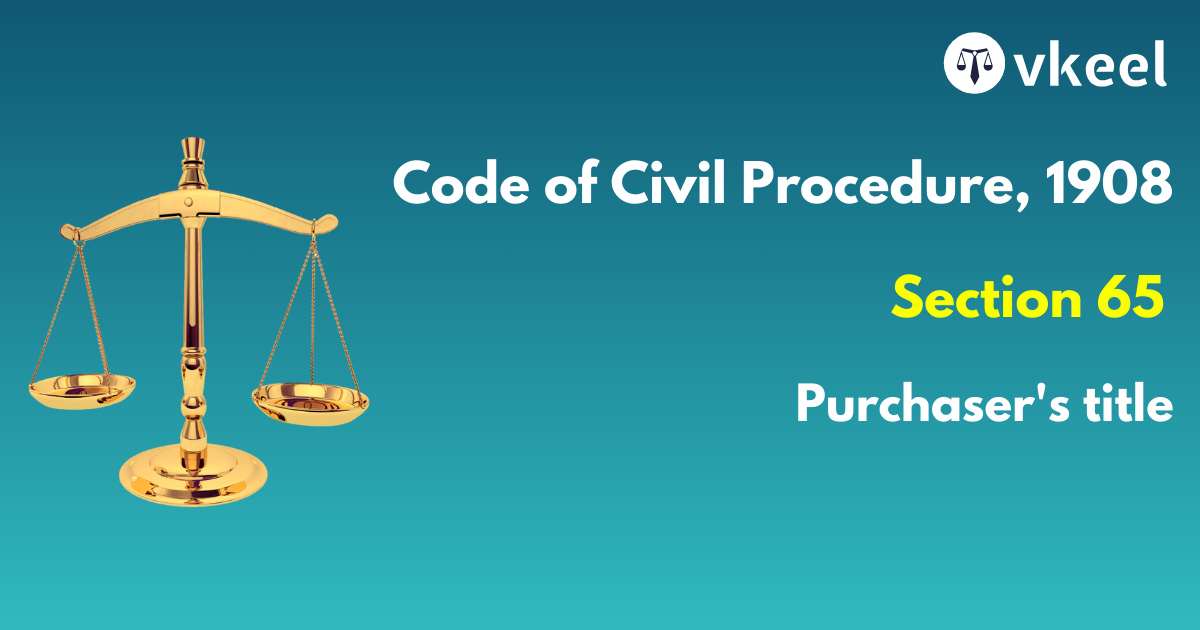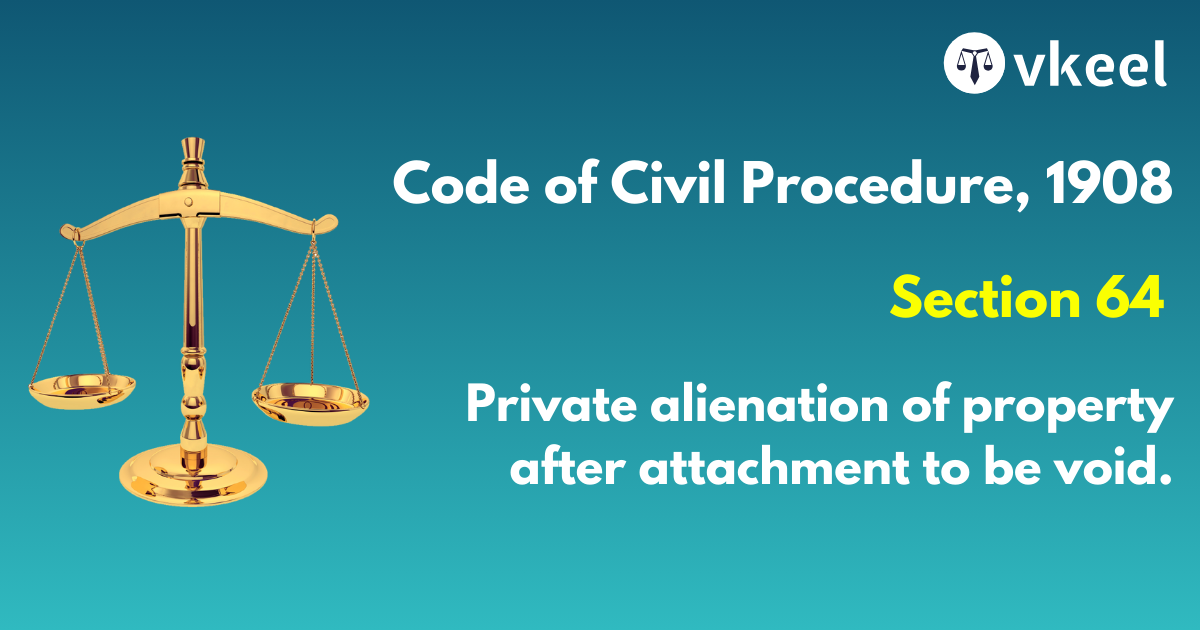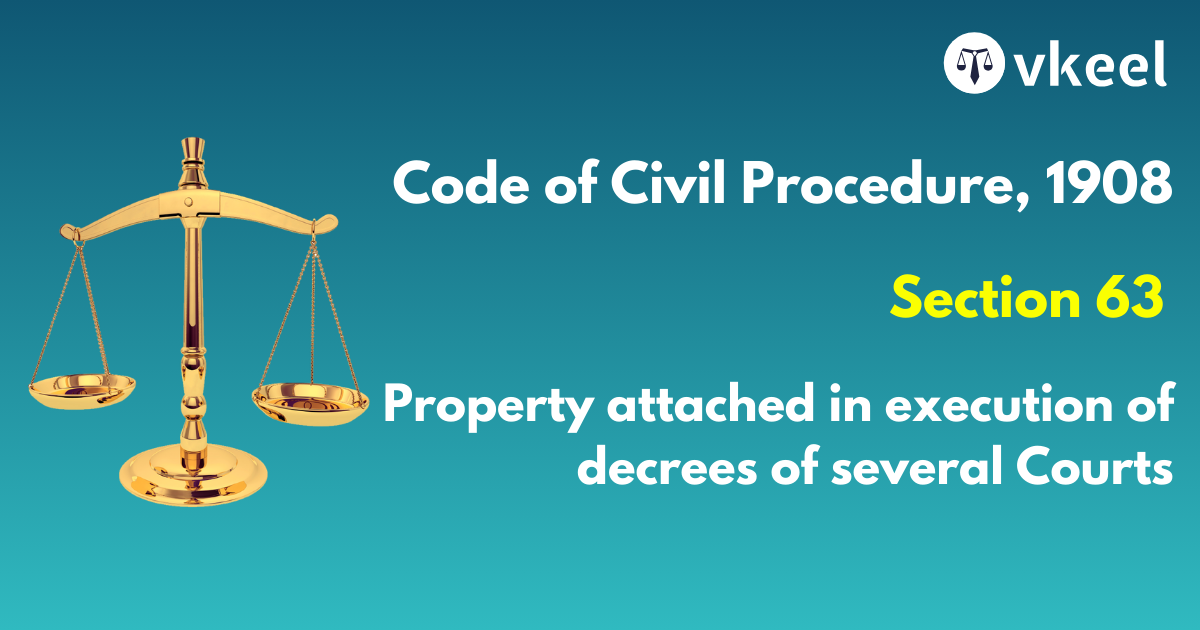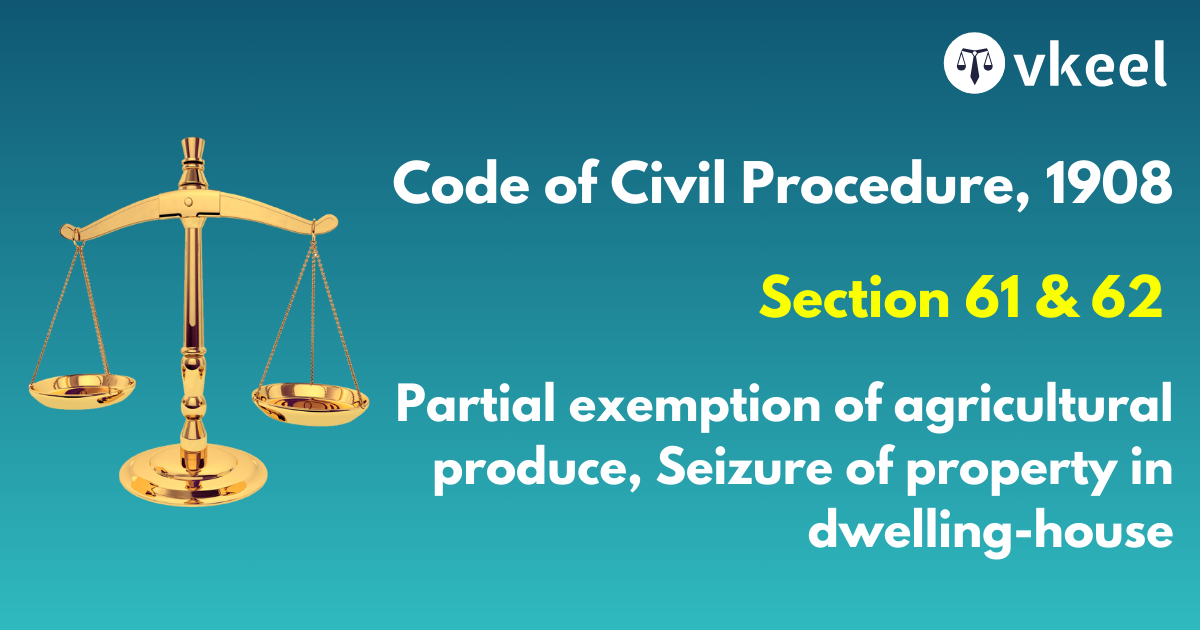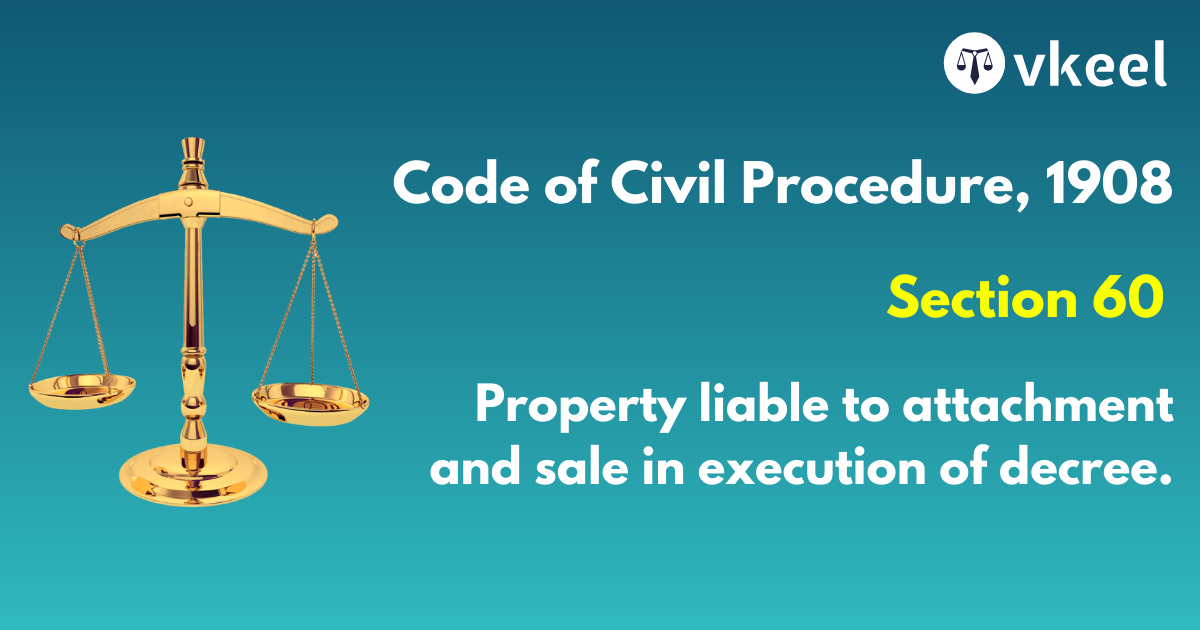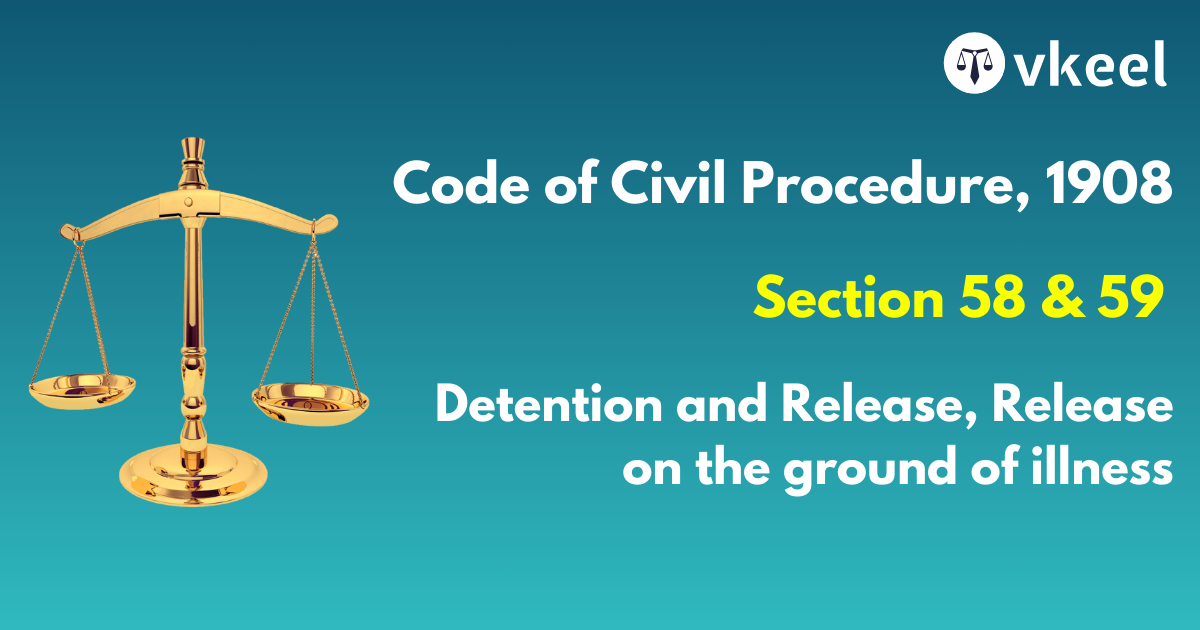Section 38 of Code of Civil Procedure,1908
By Joy Puri
Introduction
The Section 38 of the Code of Civil Procedure entails about the courts of law from which the decree of the respective suit may be executed thereof.
The Section 38 of the Code of Civil Procedure further talks about the nature. It entails that the decree can be executed either by the court which passed the respective decree or by the court of law to which it had been sent for the process of execution thereof.
Section 38 of the Code of Civil Procedure,1908
Court by which decree may be executed.
A decree may be executed either by the Court which passed it, or by the Court to which it is sent for execution.
Landmark Case Laws
Brijlal Vs Roshan, 1980
The decree has to be interpreted and enforced in a manner that the litigation is shortened and for this purpose the real intention of the parties can be gathered from the various facts and circumstances of the case
Gorachand Vs Prafulla, 1925
To hold that if the want of jurisdiction is not apparent on the face of the record, and it is necessary to prove any other fact for the purpose of establishing the lack of jurisdiction, the executing court is not competent to enquire into it and take evidence for the purpose would be to put a too narrow interpretation upon the Full Bench.
Labhsingh Vs Hardayal, 1977
Execution court can refuse to execute pre-emption decree if the pre-emption amount is not deposited in full in time in accordance with the terms of the decree, even if no such grievance was made in the grounds of appeal.
Sheonath Vs Balaswami, 1959
Where a decree is against a joint family firm the contention that the amount was misappropriated by the Karta and the other members are not liable cannot be entertained in execution
Vidyasagar Vs Suresh,1975
Decree for pre-emption of proprietary interest of suit land obtained prior to enforcement of UP Zamindary Abolition and Land Reforms Act, 1951 vesting the entire interest in the land in the State is inexecutable.
GE Money Financial Services Vs Mohd. Azaz, 2013
An arbitrator cannot be treated to be a Court although award made by him will be executed as decree of the Court. As Arbitrator is not a Court, hence sections 38 and 39 of the Code would have no application. Since Arbitrator is not a Court, it cannot entertain any application for execution
Daelim Industrial Co. Ltd. Vs Numaligarh Refinery Ltd., 2009
Without the fetter of Section 38 the Courts of the place where the property/money against which the decree is sought to be enforced is situated would have inherent jurisdiction to entertain the execution.
Rana Harkishandas Lallubhai And Others v. Rana Gulabdas Kalyandas And Another, 1955
In determining the jurisdiction of the executing Court to entertain pleas under S. 38, Civil P.C, it is always necessary to make a distinction between pleas that tend to show that the decree in question is a nullity and pleas that merely challenge the validity or the propriety of the decree on the ground that it is contrary to the provisions of law. If the plea is that the decree is a nullity and so cannot be executed, it would be open to the executing Court to entertain the plea. On the other hand, if the plea is that the decree is contrary to law in the sense that in passing the said decree certain provisions of the law have been ignored or contravened that would not necessarily make the decree a nullity and allegations about the impropriety or the illegality of the decree cannot be entertained in execution proceedings.
Kotak Mahindra Bank Ltd. v. Sivakama Sundari, 2011
In tune with Section 38 of the Code of Civil Procedure, Order 21, Rule 10 of the Code states that the holder of a decree shall apply to the Court which passed the decree, for its execution. The Application may also be made to the Court to which such decree has been sent under the provisions contained in the Code. Rule 6 of Order 21, requires the Court forwarding a decree for execution to another Court, (i) to send a copy of the decree, (ii) to send a certificate recording satisfaction or non-satisfaction of the decree, and (iii) to send a copy of any order for the execution of the decree or a certificate to the effect that no such order had been passed. The mode of transfer is prescribed by Rule 5 of Order 21. It says that where a decree is to be sent for execution to another Court, the Court which passed such decree shall send it directly to such other Court, irrespective of whether such Court is situate in the same State or not.
Conclusion
The Section 38 of the Code of Civil Procedure thereby proves to be useful for the smooth functioning of the Judicial System in India and thereby is based on the fundamental pillars of transparency and fairness.
Disclaimer:
The information provided in the article is for general informational purposes only, and is not intended to constitute legal advice or to be relied upon as a substitute for legal advice. Furthermore, any information contained in the article is not guaranteed to be current, complete or accurate. If you require legal advice or representation, you should contact an attorney or law firm directly. We are not responsible for any damages resulting from any reliance on the content of this website.

